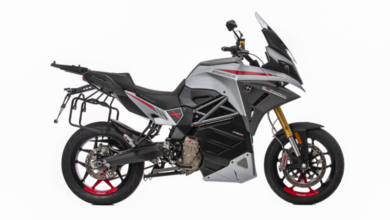Apr. 6, 2009 – Hot News
Lead law ban becomes hot topic at federal level
The controversy surrounding the ban of certain new youth ATVs and motorcycles continues to heat up at the federal government level.
Bipartisan legislation has been introduced into the U.S. House seeking to reverse the ban on youth ATVs and motorcycles that contain more than 600 parts per million of lead. The ban is a result of the new Consumer Product Safety Improvement Act that limits the amount of lead in products designed and produced for children.
At the same time, the Consumer Product Safety Commission (CPSC) is preparing a staff report on possible exemptions to the new regulation, says Scott Wolfson, a spokesman for the CPSC.
“That document will become the first public document related to the exclusions,” Wolfson said.
The staff report could support an exemption for youth ATVs and motorcycles or request the CPSC’s two commissioners to vote against providing such an exemption. Historically, the commissioners have voted on issues approximately five days after the staff report is made public. When the report will become public isn’t known, but Wolfson says the report is a top priority for the agency. Joseph Martyak, current acting director of public affairs for the CPSC, told USA Today he thought the commissioners’ ruling would occur in a short period of time.
The commissioners approving an exemption is all the industry would need to get many youth models back on the showroom floor, said Paul Vitrano, general counsel for the Motorcycle Industry Council (MIC). Vitrano notes some models might require additional testing to confirm that no lead exists in non-metal parts — the exclusion is for metal parts and batteries.
Since there are just two CPSC commissioners, there is a chance for a split decision. If such a ruling occurs, Wolfson says the matter could be revisited at a future time where revisions to the exclusions could occur or simply the split decision would remain and thus no decision would be made. “Our goal, of course, is not stagnation,” Wolfson said. “We would like to have the decision by the commission set the policy of the agency.”
One of the CPSC?commissioners, Thomas Moore, has seemingly indicated he is against such an exemption in a statement found on the CPSC Web site dated March 3. Moore addressed a frequent industry criticism that such products are banned merely for the unlikelihood that a child’s mouth will come in contact with an ATV or motorcycle part that does not meet the criteria for the lead law. Moore answered that criticism by stating, “the law does not say that we should only consider foreseeable mouthing of the parts with lead. It contemplates all the ways in which a child might ingest lead, and hand-to-mouth contact is a very common mode of lead ingestion in children.” He also noted, “We know that some children do handle the valve stems of their bikes; they certainly do have their hands on the handlebar grips and brake levers of youth model ATVs.”
In addressing the potential risk to children, the MIC said they have done the following:
Submitted scientific evidence, using the analytical method required by the legislation, that proves the lead-containing components, parts and accessories of these vehicles pose no risk to children.
Worked with a toxicology expert who has estimated that any potential lead intake resulting from kids’ exposure to motorcycles and ATVs would be substantially less than the typical daily intakes of lead from food and water.
Meanwhile in Congress, four House members (three Republicans and a Democrat) have sponsored a bill (HB 1510) that seeks to reverse the ban. The bill, at press time, was referred to the House Committee on Energy and Commerce.
Harley receives loan extension, reports say
Harley-Davidson continues to work on its financing, one of three areas the manufacturer has labeled as key to effectively dealing with the U.S. economic downturn.
The manufacturer was able to extend the term on a $500 million loan, according to published reports. The loan was from a group of lenders, including JPMorgan Chase, and was originally set to expire March 31. The new agreement runs through March 2010.
Polaris names new vice president of operations
Polaris Industries named Wes Barker as vice president of operations. Barker brings more than 20 years of global experience, driving lean operations and building efficient business cultures. He has a record of success in building teams and driving results in the U.S., Asia, Europe and Mexico, according to a company press release. Barker joins Polaris from Hubbell where he was vice president of global operations for Hubbell Lighting Division, a worldwide division that manufactures indoor and outdoor lighting solutions.
Metric OEMs sharply reduce U.S. imports
Metric manufacturers imported far fewer motorcycles into the United States in February compared with the previous-year month.
Members of the Japan Automobile Manufacturers Association (JAMA) imported 28,455 new motorcycles into the United States, a 37 percent drop from the February 2008.
Overall production for JAMA members, including Honda, Yamaha, Suzuki and Kawasaki, was down nearly 43 percent compared to February 2008. By OEM, Suzuki was down the most, at 56.5 percent. Yamaha’s production dipped 42 percent, Kawasaki 34 percent and Honda 30 percent. psb

